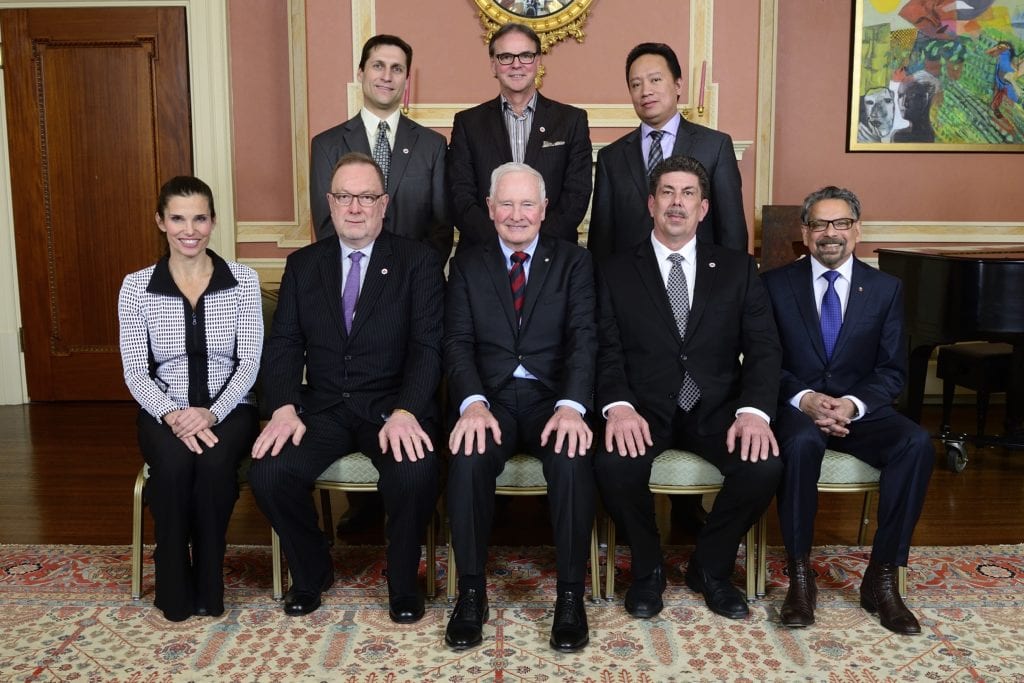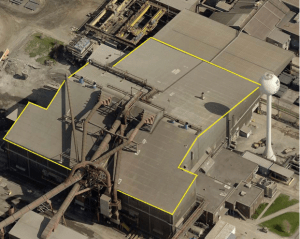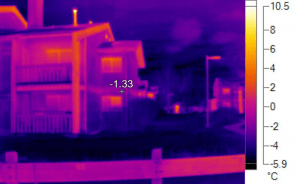$5.9 million for Red River College to bolster research in heavy vehicles and culinary innovation
Today, Red River College received the largest influx of research funding since founding its research enterprise in 2004. This new investment will allow Red River College to boost innovation capacity in Manitoba’s vehicle technology and food development sectors.
“This is a red-letter day for the College, our partners, and for Manitoba’s innovation outlook in general,” said Paul Vogt, president and CEO of Red River College. “These national awards acknowledge not only industry needs, but the ability of the College to deliver innovation services, and Manitoba as a place where leading edge products are developed.”
The Honourable MaryAnn Mihychuk, Minister of Employment, Workforce Development and Labour (on behalf of The Honourable Kirsty Duncan, Minister of Science) announced that Red River College will receive $3.6 million for advanced and sustainable vehicle technology research and $2.3 million for culinary innovation.
“These investments help post-secondary institutions such as Red River College build on their research strengths and forge closer ties to business partners in our community and province. Our support ensures that the work being done here will generate larger economic opportunities throughout Manitoba and will help grow the province’s middle class.”
“These new funds will be transformational for our research programs in the areas of vehicle technology and culinary innovation,” said Vogt. “Manitoba is already a major player in the world’s heavy vehicle sector, while we are undergoing a bit of a renaissance in terms of commercializing new food products. In both cases, these funds will help us work with producers to develop and test innovations.”
The awards have already sparked the establishment of a new Vehicle Technology & Energy Centre (VTEC) that will house MotiveLab, a 3,000 square foot research facility focused on supporting Manitoba’s heavy vehicle sector. MotiveLab will feature a 1,000 HP engine dynamometer test cell and a drive-in climatic chamber (large enough to fit a bus, or truck or farm vehicle) with an integrated 1,000 HP chassis dynamometer.
“MotiveLab will be a development and test facility that local industry partners have been asking for to support their R&D needs,” said Ray Hoemsen, executive director, Research Partnerships & Innovation, Red River College. “It will allow them to test performance in extreme climates (especially cold), the use of alternative fuels, emissions reductions, the use of new materials and components, and more – all right here in Manitoba. It will mean reduced time for product development and further incentive to innovate.”
On the culinary innovation side, the College has recently emerged as a key player in the Province – having already helped Manitoba companies and food producers to create new products , and innovative uses of locally grown food to create healthier menu items.
“Our advanced culinary research program will complement existing resources in the Province to enhance research opportunities for the entire food industry, from producers through to restaurants and cafeterias,” said Karen McDonald, chair, School of Hospitality and Culinary Arts, Red River College. “The skills and experiences gained by our students will impact the sector’s ability to innovate for years to come.”
The College’s culinary research program was hatched in 2014 with the construction of the Paterson GlobalFood Institute. Since then, Red River College has engaged in projects with Granny’s Poultry, the Manitoba Pulse and Soybean Growers Association, Best Cooking Pulses, as well as a handful of small and startup businesses.
The Natural Sciences and Engineering Research Council of Canada is granting two awards of $2.3-million from their College and Community Innovation – Innovation Enhancement grant program and the Canada Foundation for Innovation is providing $1-million from their College Industry Innovation Fund program and an additional $300,000 from their Innovation Operating Fund.
VTEC and MotiveLab will be based in the Heavy Equipment Transportation Centre at Red River College’s Notre Dame Campus.
Check out more coverage of this story:
Winnipeg Sun
MyToba
Winnipeg Free Press
Top Photo – From left, Ray Hoemsen, Executive Director of Research Partnerships & Innovation at Red River College (RRC), Guy Levesque, Vice-President, Programs and Performance, CFI, Bettina Hamelin, Vice-President, Research Partnerships, NSERC, MaryAnn Mihychuk, Minister of Employment, Workforce Development and Labour, Paul Vogt, President of RRC, Karen McDonald, Chair of Hospitality and Culinary Arts at RRC and Dr. Mark Hoddenbagh, PhD, Vice-President, Strategic Development at RRC are photographed at the Heavy Equipment Transportation Centre at Red River College in Winnipeg, Wednesday, September 7, 2016. MaryAnn Mihychuk, Minister of Employment, Workforce Development and Labour, announced through the CCI Program, $32 million awarded to 32 projects that support university-college research collaboration, equipment, technology access centers and partnerships between colleges and companies. The Government of Canada is also investing nearly $3 million through the Canada Foundation for Innovation’s CIIF Program. Canadian Press Images/John Woods







 Transforming students, faculty, staff and clients through education, partnerships, entrepreneurship and applied research has been Mark’s focus since joining the college sector in 2007. This has been accomplished by developing strong internal and external networks with creative, driven and passionate people; leveraging the expertise of faculty and staff; engaging students in addressing real-world problems and opportunities; and collaborating closely with industry, government and community organizations.
Transforming students, faculty, staff and clients through education, partnerships, entrepreneurship and applied research has been Mark’s focus since joining the college sector in 2007. This has been accomplished by developing strong internal and external networks with creative, driven and passionate people; leveraging the expertise of faculty and staff; engaging students in addressing real-world problems and opportunities; and collaborating closely with industry, government and community organizations.

 As more research is being performed and more knowledge is being shared about the importance of managing and controlling air leakage within the building envelope, leaders in the building design industry are stepping forward to collaborate with BETAC to ensure their structures are performing as they are meant to.
As more research is being performed and more knowledge is being shared about the importance of managing and controlling air leakage within the building envelope, leaders in the building design industry are stepping forward to collaborate with BETAC to ensure their structures are performing as they are meant to. BETAC is working in conjunction with Hatch’s Structural Consultant in Winnipeg for Gerdau Ameristeel Corporation. Gerdau is undertaking a major renovation of one of its buildings, the Melt Shop Facility at its Manitoba Mill located in Selkirk, MB.
BETAC is working in conjunction with Hatch’s Structural Consultant in Winnipeg for Gerdau Ameristeel Corporation. Gerdau is undertaking a major renovation of one of its buildings, the Melt Shop Facility at its Manitoba Mill located in Selkirk, MB. The research undertaken by BETAC addressed the building and material science uncertainties created by the extreme conditions from the industrial process and Manitoba climate.
The research undertaken by BETAC addressed the building and material science uncertainties created by the extreme conditions from the industrial process and Manitoba climate. BETAC worked with Synyshyn Architecture to support and further their evaluation of the building envelope system for The Ladco Lakepointe Apartments located in southeast Winnipeg.
BETAC worked with Synyshyn Architecture to support and further their evaluation of the building envelope system for The Ladco Lakepointe Apartments located in southeast Winnipeg.